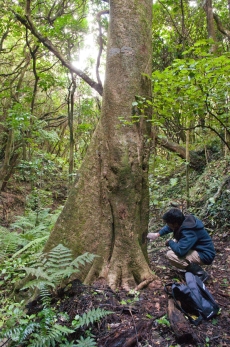Research projects
Bioactives

Bioactive natural products are a significant source of lead compounds for the development of clinically useful pharmaceuticals. Bio-prospecting is a valuable source of drug leads.
Two significant issues remain. Firstly, novel compounds with distinctive medicinally-useful properties must be found and secondly, the compound must be able to be made in large quantities.
Studying structure-activity relationships is a key tool to help solve these problems, as by isolating the active parts of a molecule, simpler analogues that can be synthesised at scale can be identified. Other developments could include culturing methods to activate 'cryptic' biosynthetic pathways as an alternative to increase supply or to yield analogue structures.
The bioactivity of any new compound is characterised using genome-wide profiling methods such as the yeast chemical genomics screen and other cell-based assays.
Chemical Ecology and analytical chemistry
My group’s interest in chemical ecology involves the modification of pest mammal behaviour through the use of volatile compounds. These volatiles are either semiochemicals (compounds that mediate inter- or intraspecies communication) or food aromas. Through the use of such volatiles the behaviour of animals can be modified, for example, to lure pests into traps or to deter native birds from investigating trap systems.
This work involves the detailed analysis of complicated matrices such as animal waste products (urine, faeces, scent marks etc) or food stuffs.
